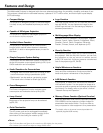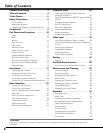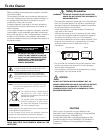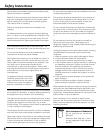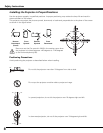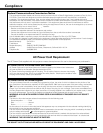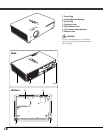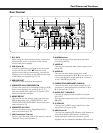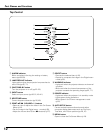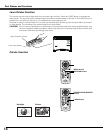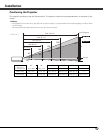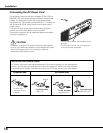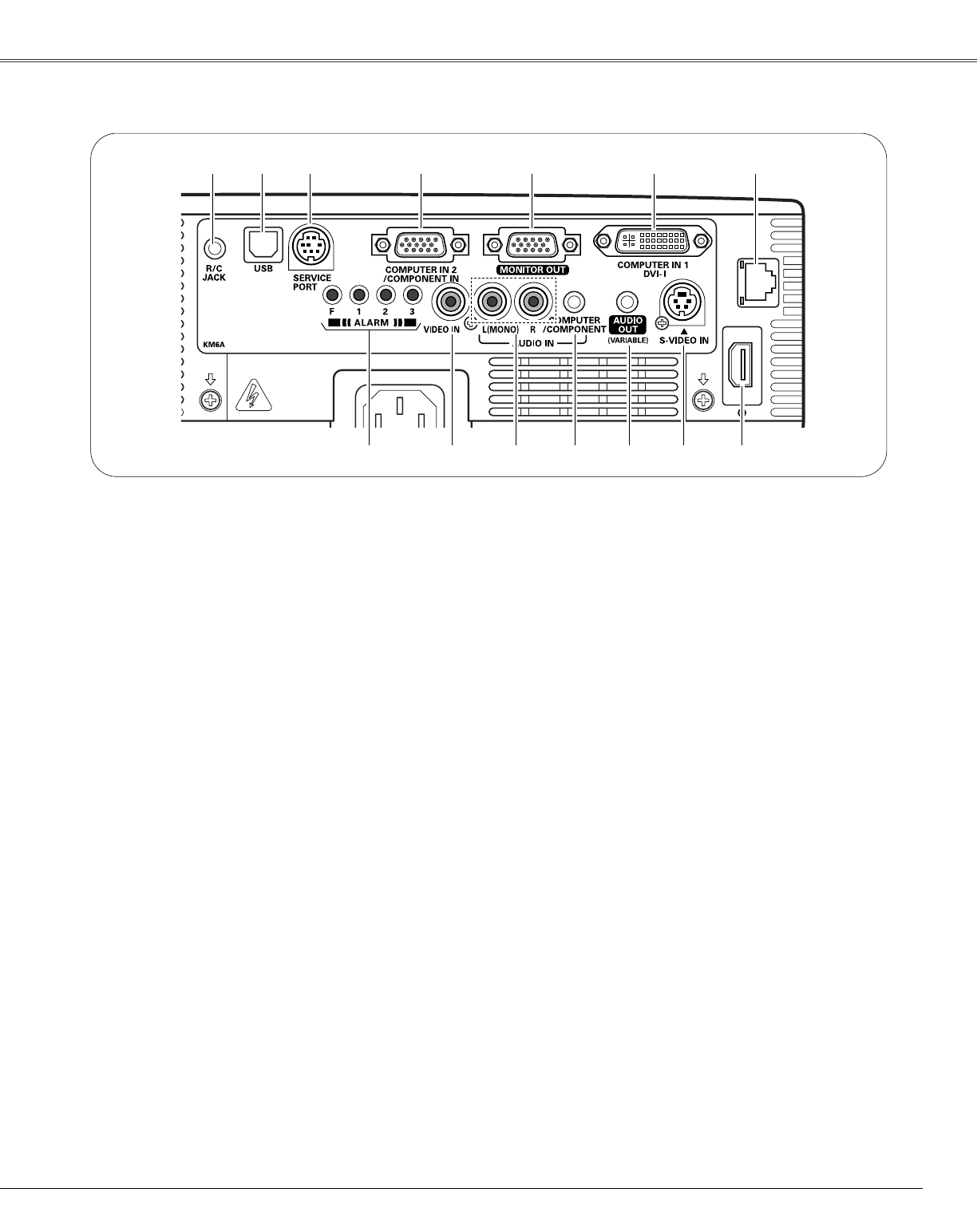
11
Part Names and Functions
!3 S-VIDEO IN
Connect the S-VIDEO output signal from video
equipment to this jack (p.20).
!0 AUDIO IN
Connect the audio output signal from video
equipment connected to o or !3 to this jack. For a
mono audio signal (a single audio jack), connect it
to the L (MONO) jack (p.20).
!1 COMPUTER/COMPONENT AUDIO IN
Connect the audio output (stereo) signal from a
computer or video equipment connected to r or
y to this jack (pp.19, 21).
o VIDEO IN
Connect the composite video output signal to this
jack (p.20).
r COMPUTER IN 2/COMPONENT IN
Connect the computer or component video (or RGB
Scart) output signal to this terminal (pp.19, 21).
Use the supplied VGA cable or a Component-VGA
cable commercially available.
!2 AUDIO OUT (VARIABLE)
Connect an external audio amplifier to this jack
(pp.19–21).
This terminal outputs sound from AUDIO IN terminal
(!0 or !1).
q R/C JACK
When using the wired remote control, connect the
wired remote control to this jack with a remote
control cable (not supplied).
e SERVICE PORT
This jack is used to service the projector.
y COMPUTER IN 1/DVI-I
Connect computer output (Digital/Analog DVI-I
type) to this terminal (p.19).
!4 USB (Series A)
Connect the supplied USB Wireless LAN Adapter or
optionally available USB memory for Memory
viewer operation (refer to the owner’s manual
supplied with the optionally available USB memory).
u LAN Connection Terminal
Connect the LAN cable (refer to the owner’s manual
“Network Set-up and Operation”).
Rear Terminal
q w e r t y
i
u
o !0 !1
w USB (Series B)
In order to operate the computer with the remote
control and use the PAGE ed buttons on the
remote control during a presentation, connect the
USB port of the computer to the USB terminal with
a USB cable (not supplied) (pp.13, 19).
t MONITOR OUT
This terminal can be used to output the incoming
RGB analog signal from COMPUTER IN 1 and
COMPUTER IN 2/COMPONENT IN terminal to the
other monitor (p.19).
i ALARM buttons
Use these buttons when setting up the Alarm
function (pp.58–59).
!2
!3
!4



